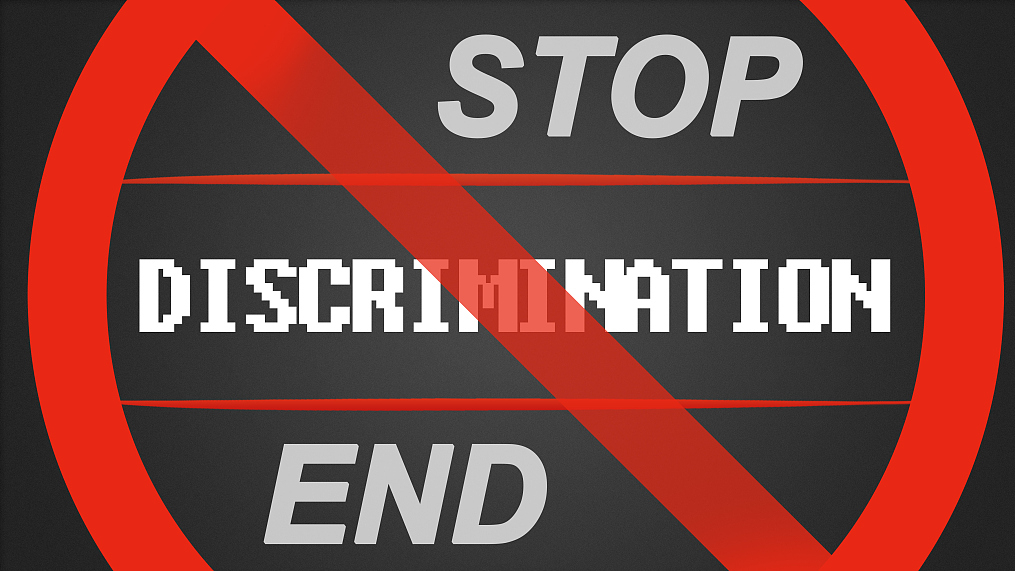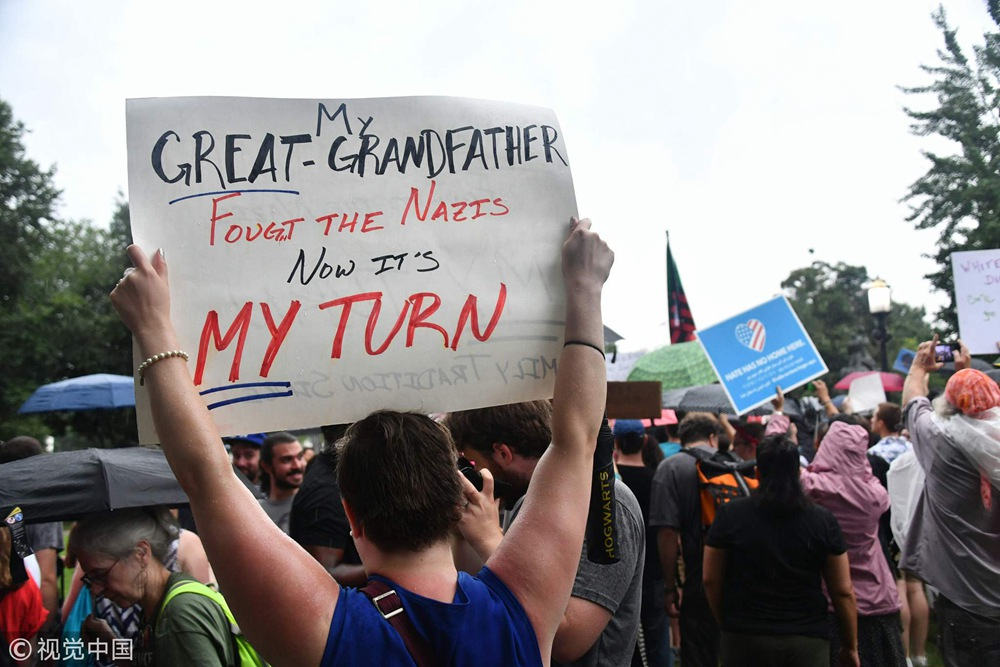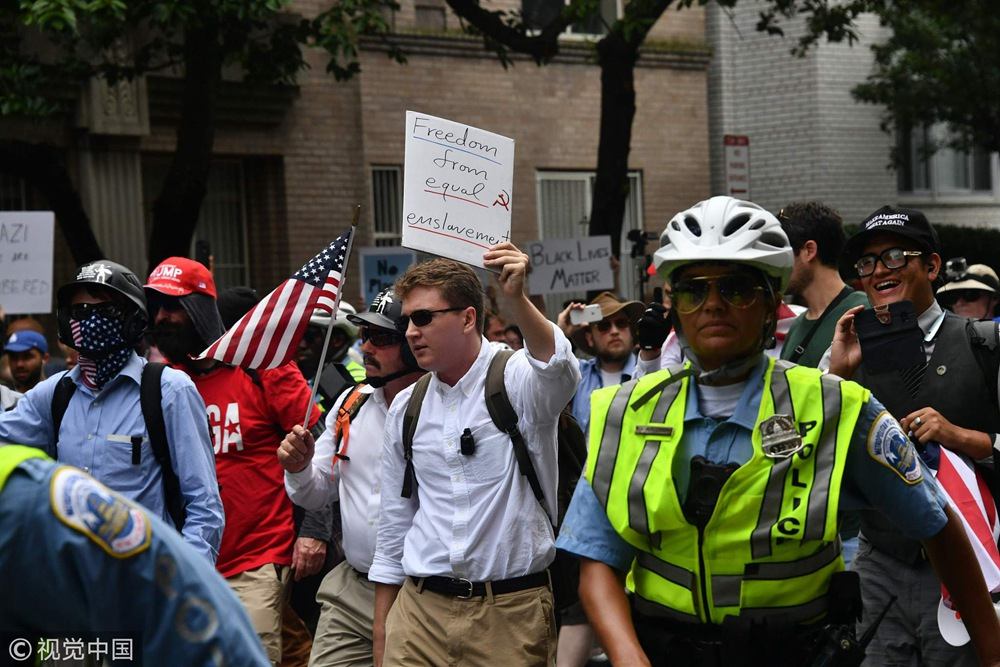

Editor's note: The China Society for Human Rights Studies released a report titled "The Deep-Rooted Racial Discrimination in the U.S. Highlights Its Hypocrisy on Human Rights" on July 26, which reveals the chronic racial discrimination existing in the United States and the hypocrisy of the U.S.-style of human rights. The report also points out that it is difficult for the U.S. to solve this problem. The following article is part four of the edited version of this report. The article does not necessarily reflect the views of CGTN.
Deeply rooted in the history and realities of the United States, racial discrimination is a structural obstacle to the realization of equal rights and status for racial minorities, and also a profound cause of societal breakdown in the country.
The problem has existed since the U.S. history began. Slaughter and displacement of Native Americans occurred throughout the colonial period and the Western Movement period. Over a period of several hundred years from the establishment of the North American colonies to the Civil War, the slave trade flourished, and numerous African slaves died from labor and abuse. The gradual abolition of racial segregation against African Americans did not begin until the mid-20th century. In the past Asian laborers too suffered serious discrimination, with the infamous Chinese Exclusion Act as an example. Such racial discrimination has persisted in various forms throughout the country’s history.

Demonstrators opposed to a far-right rally ignore the rain and hold signs at Lafayette Park opposite the White House in Washington, DC, US, August 12, 2018. /VCG Photo
The U.S. state institutions and its social system have failed in eliminating racial discrimination. Violent law enforcement, deadly shootings, entrapment, stop-and-frisk search have been commonplace. Discrimination against racial minorities in employment, promotion and pay is a hidden practice in large companies and institutions.
Financial institutions and housing agencies collaborate to maintain residential separation between different races. The social system’s underpinning role and the state institutions’ dereliction of duties have subjected U.S. minorities to inevitable discrimination in many respects including politics, economy, culture, and social life.
All racial minorities in the U.S. suffer racial discrimination to various extents. In essence, the United States is still a country of white Anglo-Saxon Protestants. All other races, ethnic groups, and religious and cultural communities endure levels of discrimination, and either overt or covert infringements of their human rights. Even white Latino people cannot avoid the impact of racial discrimination.
In 2008, many groups in the U.S., including the mainstream media, cheered for the election of African American Barack Obama as President, regarded the event as the end of American racism and a new beginning for the eradication of racial discrimination in the country.
However, over the following eight years race relations deteriorated to their worst in over two decades, as police shootings of African Americans still occurred frequently and the “Black Lives Matter” campaign surged in response. Even Obama himself acknowledged that he suffered discrimination during his tenure as president. “What is also true is that… discrimination in almost every institution of our lives… casts a long shadow. And that's still part of our DNA that's passed on,” the president said. The end of racial discrimination still remains no more than the “dream” expressed by Martin Luther King.

Police escort far-right demonstrators during a rally at Lafayette Park opposite the White House in Washington, DC, US, August 12, 2018. /VCG Photo
Since 2016, white supremacy has been renascent in the United States. The extreme right-wing rally in Charlottesville in 2017, and the racist violence that ensued, cast a shadow over race relations in the country.
Racial discrimination in the U.S. has deep and profound causes. It has become a grievous social problem for the country and is now a flashpoint for social conflict.
For all its self-styled positioning as a defender of human rights, the United States has neither the will nor the ability to solve the severe problem of racial discrimination on its own territory. This exposes the institutional and structural defects of the U.S., and the hypocrisy of its discourse on human rights. The status of race relations in the U.S. is determined by the country’s political structure, historical traditions and ideology. Without reform of these, there can be no way to break through the impasse in racial discrimination and end the resulting vicious circle in race relations, and the proper protection of the human rights of racial minorities cannot happen.
Read other parts of the report "The Deep-Rooted Racial Discrimination in the U.S. Highlights Its Hypocrisy on Human Rights":
Part One: Racial discrimination rife in the U.S.
Part Two: Racial discrimination widespread and deep-rooted in the U.S.
Part Three: Racial discrimination – a flashpoint for social conflict in the U.S.
Editor: Huang Jiyuan
(If you want to contribute and have specific expertise, please contact us at opinions@cgtn.com)

Copyright © 2018 CGTN. Beijing ICP prepared NO.16065310-3
Copyright © 2018 CGTN. Beijing ICP prepared NO.16065310-3